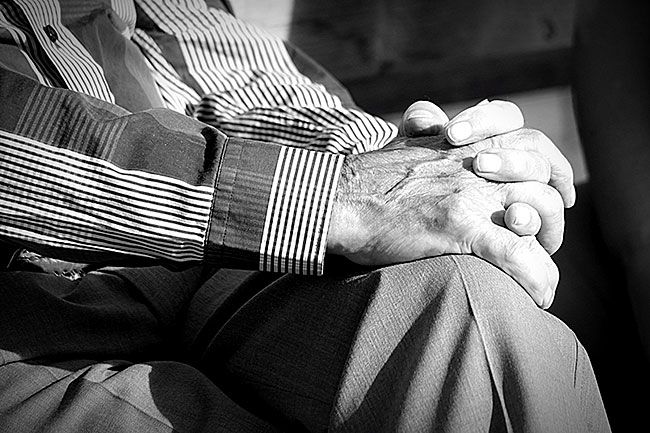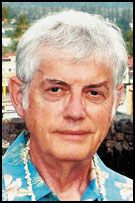King: Getting old enough to join the aging club


Seventy, maybe. But it wasn’t until 80 that I began to take my age seriously.
Dad was in his 90s when he died, and his brother was looking back at a hundred. That may sound good, but it’s not on my bucket list.
For my 80th birthday, I had a talk with my kids about aging. It seems unnatural that they are old enough to qualify as senior citizens themselves.
I said aging changes you. I told them an 80-year-old is not just a 50-year-old with gray hair.
We become different people. Not necessarily better, but different.
I told them it’s never too late to start being the person your kids will want to share a house with, or at least hang out with. If they wait, too much water may have flowed under the bridge, as my dad would say.
My final word was:
You don’t have to be old to die. So start now to get your financial, legal and medical affairs in order. Spare your family the hassle and expense of probate, possible conflicts over the furniture and whether to put you in an urn or a coffin.
I recently had a conversation with my sister about family attrition. An older sibling dies and you move ahead a notch.
We used to go to our 98-year-old brother for the names of dead relatives and other family history. My sister — 90, but in excellent health with a memory to match, will take his place.
When she goes, the next generation will be out of luck.
I moved away from relatives early and never looked back. But the way things are changing, I’ll probably never be asked anyway.
Becoming a senior citizen is like joining a club, whether you want to or not. When I’m with my fellow wrinklies, we often wind up talking about what it’s like to be us. Sometimes I think we talk about it too much.
Then I ask myself, what do the generations behind me talk about?
As a teenager, I talked about girls, school and what to do when summer comes. I lived on a farm, so sports were out of the question.
Married people talk about kids, work and one another. In short, we talk about what’s important at the time.
Talk isn’t just about sharing our stories. We are unconsciously comparing notes, sorting out what it’s like for others to be a teen, parent, employee or old person. How do we stack up against the group we’re in?
I try to keep the normal experiences of being human separate from the signs of aging. For example, I’m happy — but feel a tad bit guilty about it — when someone younger admits to lapses in memory or aches and pains that I also have.
Aging is adolescence in reverse.
When we are young, our bodies are growing, our hormones are at their peak, our skills are improving. Aging just reverses that process.
Things ahead of us begin to show up in the rear-view mirror — things like running up the stairs, picking up a grandchild, riding a bike or maybe driving a car, to name a few. It isn’t just that we may no longer be able to do those things, it’s what that says about us — that we are changing.
The day I retired reminded me of my high school graduation. The next day there would be no place I had to be and nobody to tell me to go there.
For my family, planning ahead meant when to plant and what The Farmer’s Almanac had to say about the coming Minnesota winter. I finally got it sorted out, then 46 years later, I had to do it all over again.
In spite of the sore muscles and memory lapses, I enjoy being old. And I am not afraid of death.
I like watching my kids — and their kids — grow up to make more money in a year than I did in 10.
One of my sons said he has an upstairs bedroom ready for us when we can no longer live alone. I pointed out that because of the stairs, he might have to carry us up to bed every night.
We’ve made other arrangements, but I like what it says about us. What more could an octogenarian want?









Comments